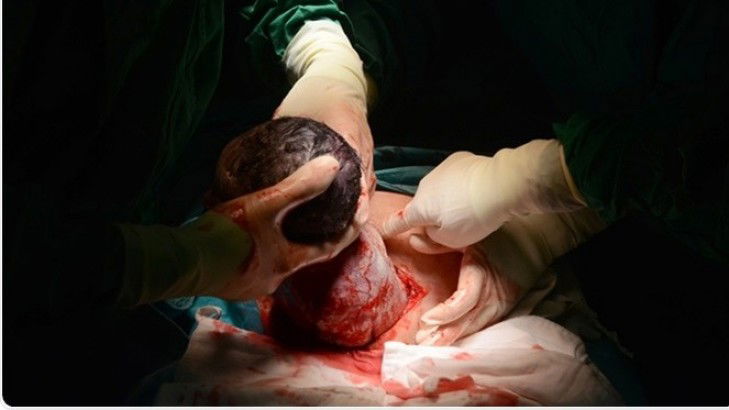health
C-section, gut bacteria may up obesity risk in kids

Toronto, Feb 23 Babies born to obese women via Caesarean-section (C-section) may be at five times greater risk of turning out overweight by the age of three, a study has found.
A gut bacteria called Lachnospiracae may also be partially blamed for the weight gain in these adolescents, the study said.
The community of micro-organisms or bacteria that live in the digestive tracts of babies are influenced by the type of delivery the mother goes through, the findings showed.
While the the risk of obesity in her child increases three times when the overweight woman delivers vaginally; the risk gets five fold the normal when she delivers via C-section, the researchers stated.
"We know that maternal overweight is linked to overweight in children," said Anita Kozyrskyj, researcher at the University of Alberta in Canada.
"Given that infant overweight and obesity are a major public health problem, our results reinforce increasing concerns over rising caesarean deliveries and affirm the role of the gut microbiota as a "super organ" with diverse roles in health and disease," Kozyrskyj said.
"What our study showed is that both type of delivery and changes in gut bacteria are involved in obesity risk," she added.
For the study, published in the journal JAMA PEDIATRICS, the researchers investigated 930 mothers and their infants.
DNA sequencing techniques performed in the laboratories provided information on the types and quantity of bacteria present in the infants' stool.
They found that an abundance of Lachnospiracae does influence the relationship between maternal weight and child weight following vaginal and caesarean birth.



































